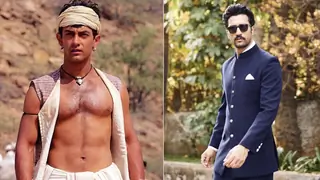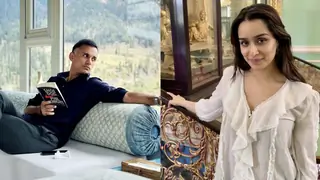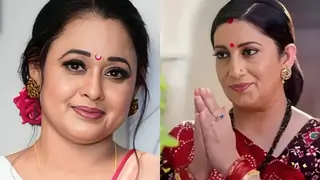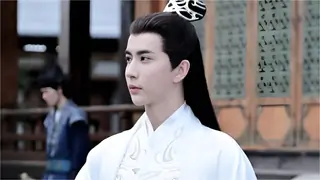Originally posted by: Isma_A
With all due respect, I would first like to say that I find it unnecessary and almost detrimental to the overall discussion and its purpose that you bring up Karan/Raman and his airtime in comparison to others in a post that is not about him, especially in the accusatory manner in which you did against the TM. We don't know how the TM feels/felt about KP/Raman's airtime. While I understand it's natural to make assumptions on how a person might feel about a certain topic by using what that person has expressed (to you) for another topic, it's unfair to do that when the two topics are independent of each other. As this thread is discussing Ishita and her role in today's Raman-Ruhi scenes, I fail to see how bringing up Karan/Raman's airtime, especially in the manner in which you did, furthers the discussion. It instead only dilutes the discussion and invites petty fan wars that could easily be avoided otherwise and which I'm sure we are all above. 😊
Now, responding to your points:
1) Ishita is indeed the bridge between Raman and Ruhi, and it is because of Ishita that Raman won Ruhi's custody. No argument from me there. Where I will argue your point is that her presence was of utmost requirement in this scene, for I find this quite inconsistent given the current status of the Raman and Ruhi relationship. Raman and Ruhi are not at their once fragile and damaged stage, where it was only Ishita that can bridge their distances and help them mend. We have moved very much beyond that, to a point where I would argue Raman and Ruhi can have such conversations on their own. This father-daughter relationship has progressed very nicely, mainly due to Ishita, but just because they were broken once and Raman was unable to communicate and express his love for his daughter, does not mean he is the same man today. Yes, Ruhi was scared, vulnerable, back at that low point where she thought her father didn't love her. Her feelings matched those of how she felt at the beginning of the Raman-Ruhi relationship, so it's understandable to think Ishita was necessary. The huge difference between then and now, however, is exactly how far Raman and Ruhi have come from that point. We have seen them build a relationship through Ishita, which is all expected and well, but we have also seen them slowly build a relationship that is just the two of them, independent of Ishita. I again acknowledge Ishita's role in facilitating this but would like to emphasize that once the independent relationship was built, it's not that Ishita's role was minimized, but rather rearranged to now fulfill other purposes, ie, she doesn't necessarily have to be present in such sensitive conversations between the father and daughter duo. This conversation was one in which a daughter was desperate to know her father loved her and a father desperate to prove to his daughter that he loved her; the mother can and should provide moral support, but largely, I believe, let the two sort this out. It is a private matter between the two involved, a private moment, that I believe, should not be interrupted by anyone. Ishita helped Raman win Ruhi's custody, yes, but ultimately and eventually, Raman won Ruhi's love himself (today was a perfect example).
2) I again would like to say that bringing up Raman in an attempt to prove a point about Ishita doesn't further the overall discussion and its purpose. I will therefore overlook your questions about Raman and his taunts (although I'm happy to discuss my views on this if someone opens such a topic) and instead respond only to the points about Ishita. I believe the issue the TM had with Ishita's lectures was in their length and placement. I, too, found her lectures very long and and the placement inappropriate, only because they interrupted the flow of an otherwise beautiful moment depicting the love between a father and daughter. I especially found the last 'truth prevails' lecture unnecessary in this particular scene. We have a six-year-old who is on top of the world knowing her father loves her and a father happy to know he won his daughter's love. This was a lovely scene because it was about love. The lecture on truth interrupted that flow, interrupted that feel. I didn't want to hear her lecture on truth prevailing, not right now. I wanted to see the scene that was initially set-up, a scene about the love between a father and daughter. The truth played a role in confirming this love, indeed, but it was not something I needed to hear or see, especially at length, in this particular scene.
3) Due to what I believe is heavy-handed and unimaginative writing at times by the CVs, I believe we often forget that there was a Ruhi before Ishita, a damaged one yearning for her father's love, but one who came from an otherwise loving family. If memory serves me correctly, her grandmother (and buas) played a large role in Ruhi's upbringing. While she was unhappy and wanted a mother's love, she was not a miserable child without manners, common sense, and knowing right from wrong. Ishita has undoubtedly played a significant role in teaching Ruhi and raising her to be a good girl, but from what I remember, Ruhi was a pretty good kid before Ishita, too, albeit a sad one. I understand the need for giving a social message, but I don't believe this was the time and place.
Overall, I found the Raman-Ruhi scenes fabulous, but would have appreciated if some of that time that was spent on Ishita giving lectures while Raman-Ruhi were in the background to instead have been the the other way around. It would have been nicer to have Raman and Ruhi in the foreground just a bit more with Ishita instead in the background, as the scene was ultimately about the bond between a father and daughter,



















